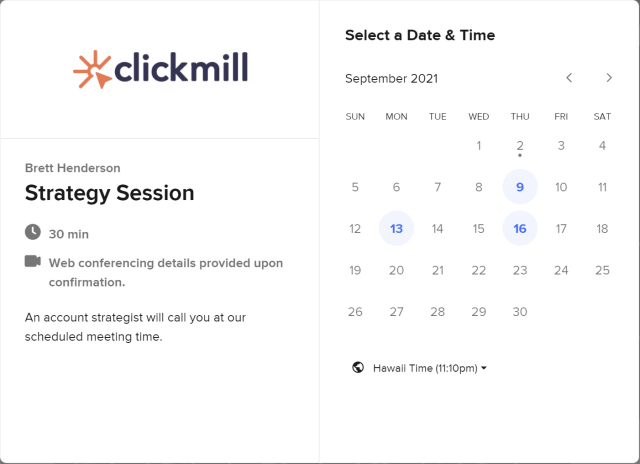Social media marketing for churches helps connect with the community, find new members, and share your message. Start with clear goals, make engaging content, and use analytics to track your progress. Stay real and responsive to overcome challenges.
Hello, dear pastors and church leaders! Welcome to the digital age, where the gospel has the potential to reach corners of the world like never before.
As shepherds of your flock, it’s crucial to meet your congregation where they are, and today, that’s online.
Social media marketing for churches is no longer an option; it’s a necessity.
Understanding Social Media Marketing For Churches

The times are changing, and so are the ways we connect and communicate.
Social media has become a vital tool in extending the reach of your church’s message beyond the walls of the sanctuary.
It’s about creating a digital congregation, a community that spans geographical boundaries but is as tight-knit as ever.
In today’s digital age, where people are increasingly spending their time online, churches have an unprecedented opportunity to reach a broader audience.
From the young adult browsing Instagram after work to the parent checking Facebook during their child’s soccer practice, social media platforms offer a unique space to connect with individuals who might not traditionally walk through the church doors.
“For where two or three gather in my name, there am I with them.” – Matthew 18:20
This verse reminds us that the gathering of believers, whether in person or online, holds special significance.
Social Media Marketing for Churches allows you to create a digital gathering place where the presence of faith, community, and church growth can thrive, even in the digital realm.

Get A Proven Marketing Plan That Increases Enrollments When You Book A Call Today!
Receive customized advice to help your school attract more families!
Why Social Media Marketing for Churches is Essential
Reach a Younger Demographic: The younger generation, often referred to as millennials and Gen Z, are deeply entrenched in the digital world.
By establishing a presence on platforms they frequent, churches can engage with them in a language and medium they understand.
Foster Community Engagement: Social media allows for two-way communication.
It’s not just about broadcasting your message but also listening and engaging with your congregation. This interaction can foster a deeper sense of community and belonging.
Cost-Effective Outreach: Traditional outreach methods, like print advertising or radio spots, can be costly.
Social media platforms, on the other hand, often offer free accounts, and even paid promotions can be more cost-effective and have a broader reach.
Immediate Feedback and Interaction: Post a sermon snippet, and instantly receive feedback.
Launch a prayer request thread and witness the congregation come together in support. The immediacy of social media allows for real-time engagement and connection.
Expand Geographical Boundaries: No longer is the church’s reach confined to its physical location.
With social media, churches can touch lives across states, countries, and even continents. It’s truly a global outreach tool.
Promote Church Events and Activities: Whether it’s a youth retreat, a charity drive, or Sunday service, social media provides a platform to inform, remind, and even livestream events, ensuring higher participation and attendance.
Share Inspirational Content: Daily verses, spiritual reflections, and uplifting stories can be shared, offering solace and inspiration to followers throughout the week, not just on Sundays.
Social media marketing for churches isn’t just a trend; it’s a transformative tool.
It aligns perfectly with the church’s mission to spread the word, connect believers, and foster a sense of community.
In the digital age, churches that embrace social media marketing position themselves for growth, relevance, and deeper connections.
A Digital Leap of Faith: Beginning Social Media Marketing for Churches

Identifying Your Online Congregation
Just as Jesus knew His audience, from fishermen to Pharisees, you need to know who you’re speaking to online.
What are their struggles? Their joys? Understanding your digital congregation’s demographics and interests is the first step in crafting messages that resonate and provide true value.
Who Are They?
Start by identifying the age, occupation, marital status, and interests of your online audience. Use social media analytics tools to gather data on your followers. This information will help you tailor your content to suit their needs and preferences.
Speak Their Language
Once you know who they are, speak in a way that resonates with them. Use language, stories, and references that they can relate to. Make your content accessible and relatable, ensuring that it strikes a chord with your digital congregation.

Get A Proven Marketing Plan That Increases Enrollments When You Book A Call Today!
Receive customized advice to help your school attract more families!
Building a Community: Engagement on Social Media
Engagement is the heartbeat of social media. It’s not enough to just post; you need to interact, just as Jesus did when He walked among the people.
Respond to comments, ask questions, and create content that encourages participation. Build that digital community with intention and care.
Foster Interaction
Encourage your followers to share their thoughts, stories, and prayers. Create a safe and welcoming space for them to express themselves and connect with others.
Be Present
Make sure you are actively participating in the conversation. Respond to comments, answer questions, and show that you are there and that you care.
Addressing the Real Needs through Digital Platforms
Just as Jesus addressed the genuine needs of people, from healing the sick to feeding the hungry, your online content should cater to the inner needs of your digital congregation. Share uplifting Bible verses, like John 3:16, or host online Bible study sessions.
“For God so loved the world that he gave his one and only Son, that whoever believes in him shall not perish but have eternal life.”
Provide Inner Nourishment
Share daily devotions, prayers, and inspirational messages to provide inner support and guidance to your followers.
Create a Virtual Sanctuary
Use your social media platforms to create a space where your digital congregation can find peace, solace, and inner nourishment.
Combining Practical and Inner Value on Social Media
Balance is key. Share practical information about upcoming events and service times, but also provide content that feeds the soul. Create posts that not only inform but also inspire, reflecting the dual nature of Jesus’ ministry.
Share Practical Information
Keep your congregation informed about what’s happening in your church. Share updates about services, events, and activities.
Inspire and Uplift
In addition to practical information, share content that uplifts and inspires. Post quotes, scriptures, and messages that encourage and empower your followers.
Inspiring Action: The Power of a Call to Action
Every post should have a purpose, a next step for your followers to take.
Whether it’s inviting them to a service, encouraging them to share a prayer request, or prompting them to reflect on scripture, make your calls to action clear and compelling.
Encourage Participation
Use calls to action to encourage your followers to get involved, whether it’s attending a service, joining a group, or participating in a community service project.
Foster Commitment
Use your content to inspire commitment and action. Encourage your followers to take the next step in their faith journey, whatever that may be.
By following these guidelines, you can create a meaningful and impactful social media presence for your church, fostering a sense of community, providing inner nourishment, and inspiring action.

Get A Proven Marketing Plan That Increases Enrollments When You Book A Call Today!
Receive customized advice to help your school attract more families!
Social Media Strategy Example for Churches
1. Social Media Marketing for Churches: Define Clear Goals with Measurable Outcomes
- Youth Engagement: Launch a monthly online Bible study series on Instagram Live, targeting younger members. Measure success by tracking the number of participants and the engagement rate.
- Boost Sunday Service Attendance: Use Facebook Events to create and promote your Sunday services. Encourage members to RSVP and share the event, aiming for a 10% increase in physical attendance over three months.
2. Social Media Marketing for Churches: Consistent and Purposeful Engagement
- Content Calendar: Plan a monthly content calendar. For instance, Mondays could be for motivational Bible verses, Wednesdays for community stories, and Fridays for event announcements.
- Interactive Sessions: Host weekly Q&A sessions on platforms popular with your congregation. This could be a Twitter chat or an Instagram Live session where you discuss theological topics or address community concerns.
3. Social Media Marketing for Churches: Use Relevant Keywords and Hashtags
- Incorporate relevant terms in posts discussing your church’s approach to digital outreach. This not only boosts visibility but also positions your church as a thought leader in the space.
- For YouTube, ensure you’re targeting the right keywords in your video titles, descriptions, and tags to ensure your content reaches the intended audience.
4. Social Media Marketing for Churches: Drive Traffic to Your Own Platforms
- CTAs in Posts: Every post should have a clear Call to Action (CTA). For instance, after sharing a snippet of a sermon on Instagram, include “Watch the full sermon on our website. Link in bio.”
- Exclusive Content: Offer exclusive content, like a special sermon series or an e-book on Christian living, only available to those who sign up on your website.
- Webinars and Online Courses: Host webinars or short online courses on topics like “Understanding the Gospels” or “Christian Parenting in Modern Times.” Promote these on social media but require registration on your church’s website.
If you want to learn more about why ‘your’ social media audience isn’t really your audience, check out our video titled: Church Social Media Strategy: The #1 Most Dangerous Church Social Media Mistake.

Get A Proven Marketing Plan That Increases Enrollments When You Book A Call Today!
Receive customized advice to help your school attract more families!
5. Social Media Marketing for Churches: Collaborate, Engage, and Partner
- Facebook Engagement: Instead of limiting yourself to your church’s page, venture out. Search for groups that align with your church’s mission. Engage genuinely, sharing insights and building relationships. Remember, the goal is to introduce new audiences to your own platform.
- Relatable Posts: Craft posts that resonate with daily life yet subtly guide followers to explore your church’s platform for deeper content.
- Guest Posts: Invite influential figures in the Christian community to share their thoughts or testimonies on your platforms. This not only provides fresh content but also attracts their followers to your platforms.
- Community Events: Collaborate with local businesses or organizations for community service events. Promote these on social media, driving registrations through your church’s website.
6. Social Media Marketing for Churches: Analyze, Learn, and Adapt
- Monthly Analysis: Use tools like Google Analytics for your website and native analytics on social platforms to understand what’s working and what’s not.
- Feedback Loops: Encourage feedback from your digital congregation. Maybe run a monthly poll asking what they’d like to see more of.
By following this comprehensive strategy, churches can harness the power of social media, reaching out to new audiences while deepening the engagement with their existing community.

Get A Proven Marketing Plan That Increases Enrollments When You Book A Call Today!
Receive customized advice to help your school attract more families!
Navigating Challenges in Digital Ministry
In the age of technology, churches are presented with a unique opportunity to expand their reach and connect with a broader audience.
However, as with any venture, there are challenges to be faced. Social Media Marketing for Churches, while a powerful tool, is not without its hurdles.
But with determination, strategy, and a deep understanding of your digital congregation, these challenges can be navigated successfully.
Time Constraints in Social Media Marketing for Churches
One of the most common challenges faced by churches venturing into the digital realm is time.
Managing social media platforms, creating content, and engaging with followers can be time-consuming.
Solution: Consider creating a content calendar to plan posts in advance. This not only helps in ensuring regular posting but also in maintaining a consistent message.
Additionally, consider training volunteers or hiring a dedicated social media manager to handle the church’s online presence.
Keeping Content Fresh and Engaging
With the plethora of content available online, how can Social Media Marketing for Churches stand out? Keeping content fresh, relevant, and engaging is crucial.
Solution: Listen to your congregation. Understand their needs, questions, and what resonates with them.
Use this feedback to create content that speaks directly to them. Incorporate different types of content, from videos and podcasts to articles and infographics, to keep things varied and interesting.
Navigating Negative Feedback
The digital world can sometimes be a harsh place, and negative feedback or comments can be disheartening.
Solution: Approach negative feedback with grace and understanding. Use it as an opportunity for growth and learning.
Ensure that your social media platforms are a safe space for all, and consider setting guidelines for interactions to maintain a positive environment.
Staying Updated with Digital Trends
The digital landscape is ever-evolving. What works today in Social Media Marketing for Churches might not work tomorrow.
Solution: Stay updated with the latest trends and algorithms. Attend webinars, workshops, and seminars focused on digital marketing.
This continuous learning will ensure that your church remains relevant in the digital age.
Balancing Digital and Physical Ministry
While digital ministry is essential, it’s crucial not to neglect the physical congregation.
Solution: Use Social Media Marketing for Churches as a tool to complement, not replace, physical ministry. Encourage online followers to attend physical services, join community groups, or participate in church events.
While challenges in digital ministry are inevitable, they are not insurmountable. With a clear strategy, commitment, and a focus on genuine connection,
Social Media Marketing for Churches can be a powerful tool in spreading the message of faith, hope, and love to a global audience.
Social media marketing for churches is not merely a trend to follow; it’s a transformative tool for modern ministry.
It’s about forging deeper connections, reaching beyond physical boundaries, and creating a supportive online community.
In this digital age, churches have the unique opportunity to touch lives globally, offering solace, guidance, and a sense of belonging.
By embracing digital platforms, churches can foster a sense of unity, even in a dispersed congregation.
As the world becomes more interconnected, it’s crucial for churches to harness the power of social media, ensuring their message of faith and hope resonates far and wide.

Get A Proven Marketing Plan That Increases Enrollments When You Book A Call Today!
Receive customized advice to help your school attract more families!
Social Media Marketing for Churches FAQs
1. How can we get started with social media marketing for our church?
Getting started with Social Media Marketing for Churches begins with understanding your congregation’s needs and preferences. First, determine which social media platforms are most frequented by your congregation. Create accounts on those platforms, ensuring your profiles are complete with relevant information about your church. Next, develop a content strategy that aligns with your church’s mission and values. Consider attending workshops or webinars on Social Media Marketing for Churches to gain insights and best practices.
2. What types of content should we post?
When considering content for Social Media Marketing for Churches, it’s essential to strike a balance between informational and inspirational content. Share upcoming events, service times, and church news. Additionally, post uplifting messages, Bible verses, testimonials, and stories from your congregation. Visual content, like photos from church events or video snippets of sermons, can also be engaging. Remember, the goal is to resonate with your audience and provide value.
3. How often should we post on social media?
The frequency of posts in Social Media Marketing for Churches can vary based on your resources and the engagement levels of your audience. However, a general rule of thumb is to post 3-5 times a week. Consistency is key. It’s better to post regularly than to have sporadic bursts of multiple posts. Using scheduling tools can help maintain a consistent posting schedule.
4. How can we encourage our congregation to engage with our social media content?
To boost engagement in Social Media Marketing for Churches, create interactive content. Host Q&A sessions, encourage followers to share their testimonies, or create polls to gather opinions. Highlight stories from your congregation and respond to comments and messages promptly. During physical services, remind your congregation about your social media presence and encourage them to join the online community.
5. What tools can we use to manage our church’s social media accounts?
There are several tools available that can streamline Social Media Marketing for Churches. Different Platforms allow you to schedule posts, monitor engagement, and analyze results.
These tools can help you maintain a consistent posting schedule, engage with your audience, and measure the effectiveness of your social media efforts.
By embracing the potential of Social Media Marketing for Churches, you can foster deeper connections, reach a broader audience, and create a vibrant online community that complements your physical congregation.
How do you envision Social Media Marketing for Churches strengthening and expanding your church community in today’s digital age? Let us know in the comments!

Responses